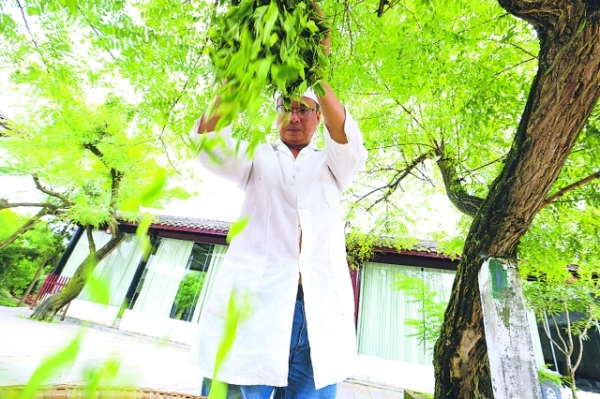Matou village on path to prosperity

A man demonstrates tea processing in Matou village. [Photo/Kaiyang county]
Matou village in Kaiyang county is on the path to prosperity due to the integrated development of its tea and tourism industries.
The village is located one hour from the city of Guiyang by car and is home to more than 5,000 mu (333.33 hectares) of tea trees.
In the 1990s, the village was poverty-stricken with an average annual income of less than 800 yuan ($120.93) per person.
With the help of 100 mu of tea trees, local residents began producing tea to drive economic development.
Two varieties of tea trees, namely "Fuding Dabai" and "Longjing 43", were chosen by farmers based on the local climate and soil conditions.
The tea is picked manually, and tea production is strictly implemented in accordance with organic tea standards.
"The Tea Research Institute of Guizhou Province and the tea office of Kaiyang county provide us with long-term technical guidance," said Song Huajiu, Party secretary of Matou village.
The annual output of tea in the village is around 70 metric tons, which is valued at more than 8 million yuan.
Song also said that more than half of the produced tea is bought by tourists on site.
With activities such as tea garden sightseeing, tea picking, tea processing sampling, and tea art performances, the village attracts a large number of tourists annually.
Tourists have increased from 40,000 to 50,000 annually in the village's early days to more than 400,000 now.
The combined income from tea production and tourism in the village exceeds 16 million yuan annually.
Presented by China Daily.
黔ICP备05001922号-3
